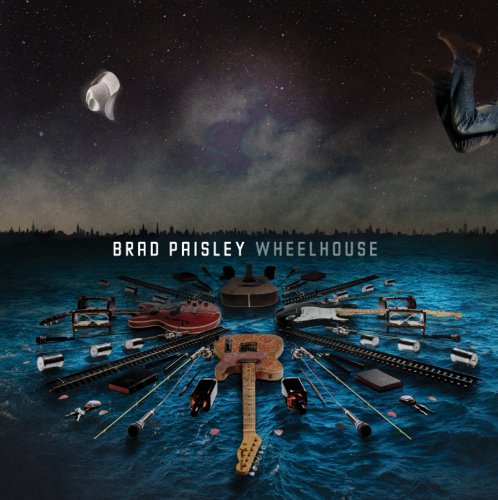All Nonfiction
- Bullying
- Books
- Academic
- Author Interviews
- Celebrity interviews
- College Articles
- College Essays
- Educator of the Year
- Heroes
- Interviews
- Memoir
- Personal Experience
- Sports
- Travel & Culture
All Opinions
- Bullying
- Current Events / Politics
- Discrimination
- Drugs / Alcohol / Smoking
- Entertainment / Celebrities
- Environment
- Love / Relationships
- Movies / Music / TV
- Pop Culture / Trends
- School / College
- Social Issues / Civics
- Spirituality / Religion
- Sports / Hobbies
All Hot Topics
- Bullying
- Community Service
- Environment
- Health
- Letters to the Editor
- Pride & Prejudice
- What Matters
- Back
Summer Guide
- Program Links
- Program Reviews
- Back
College Guide
- College Links
- College Reviews
- College Essays
- College Articles
- Back
Accidental Racist by Brad Paisley
I've read many articles reacting to this song, and I can't hardly believe that it hasn't gotten more positive reviews than it has. Many argue that the song doesn't ask enough of the South, and too much of African Americans (e.g. LL Cool J says If you don't judge my gold chains,/ I'll forget the iron chains. Oh wow, you will look past his choice of accessory if he looks past your grandfathers' brutal enslavements of his grandfathers!) They also argue the song isn't that well written (Max Read on Gawker.com exclaims " It appears to be... some kind of 11th-grade AP U.S. History project!") and some even argue (and believe it to be a valid point) that Paisley wasn't even born in the South; he was born in West Virginia, and this somehow effects the message of the song.
However, critics need to keep in mind the audience of Paisley's song--the audience of country music, whom, I begrudgingly admit as a country music addict myself, mostly consists of racist good old boys and girls. (I stress the MOSTLY; there are still a lot of country music lovers out there who aren't racist.) Sometimes, even in my town, (Small Town, Kentucky), if you're not racist, you're considered not proud of your Southern heritage; but one of the positive messages this song conveys is it's okay to not be racist and still have Southern pride (Paisley's line, "I'm proud of where I'm from,/but not everything we've done.) Sometimes Southerners today get the blame for what our ancestors did, and Southerners like me are automatically labeled and stereotyped as racist because "all Southerners are bad because they condoned and flourished in slavery."
I can't help what my ancestors did, (Paisley's line, "It ain't like you and me can rewrite history), but I can help what I do. I don't have to adopt the traditional negativity and malice that most white people where I live regard the black race. If I take that step forward, and look past LL Cool J's gold chains, (no matter what other articles say, LL Cool J isn't talking about his literal gold chains; the gold chains are merely a symbol of black culture, which is usually regarded with much distaste in my parts...) he'll forget the iron chains (again, a symbol, but this one is more easily recognized.)
What I'm trying to say is, if you're not a Southerner, you're not the intended audience and probably will think this song is very poorly written and does not ask Southerners for the justice that African Americans deserve; however, if you lived where I lived, in amongst a place where racism and stereotyping by the color of your skin is still very rampant and very much a problem, and your loyalty to where you are from (which is considered VERY important where I'm from) is questioned if you offer any new radical ideas about racism. This song hits home with me and many of my neighbors, while it may not to a white family in New York; a New Yorker may find it offensive, but for the people of my town, it is a step in the right direction. It is especially better than the place we are at right now.
So, before you complain about how the song is so poorly written, or how it doesn't give African Americans enough justice; let my words soak in so you can realize that Paisley is writing to a group of people who you can't get to by starting out ranting and raving; baby steps must be taken, and "Accidental Racist" is a necessary baby step to take. The South has built up a wall throughout the Civil War and Civil Rights Movement, becoming protectant of its own ego by establishing "Southern pride," and "Accidental Racist" is one of the first blows to this ego. I know it lifted me out of the rut I was in, feeling like I was "stuck somewhere between Southern pride and Southern blame." (Paisley's line)
Like Paisley says (paraphrased to meet my gender specifications),
"I'm a daughter of the new South."
Similar Articles
JOIN THE DISCUSSION
This article has 0 comments.

